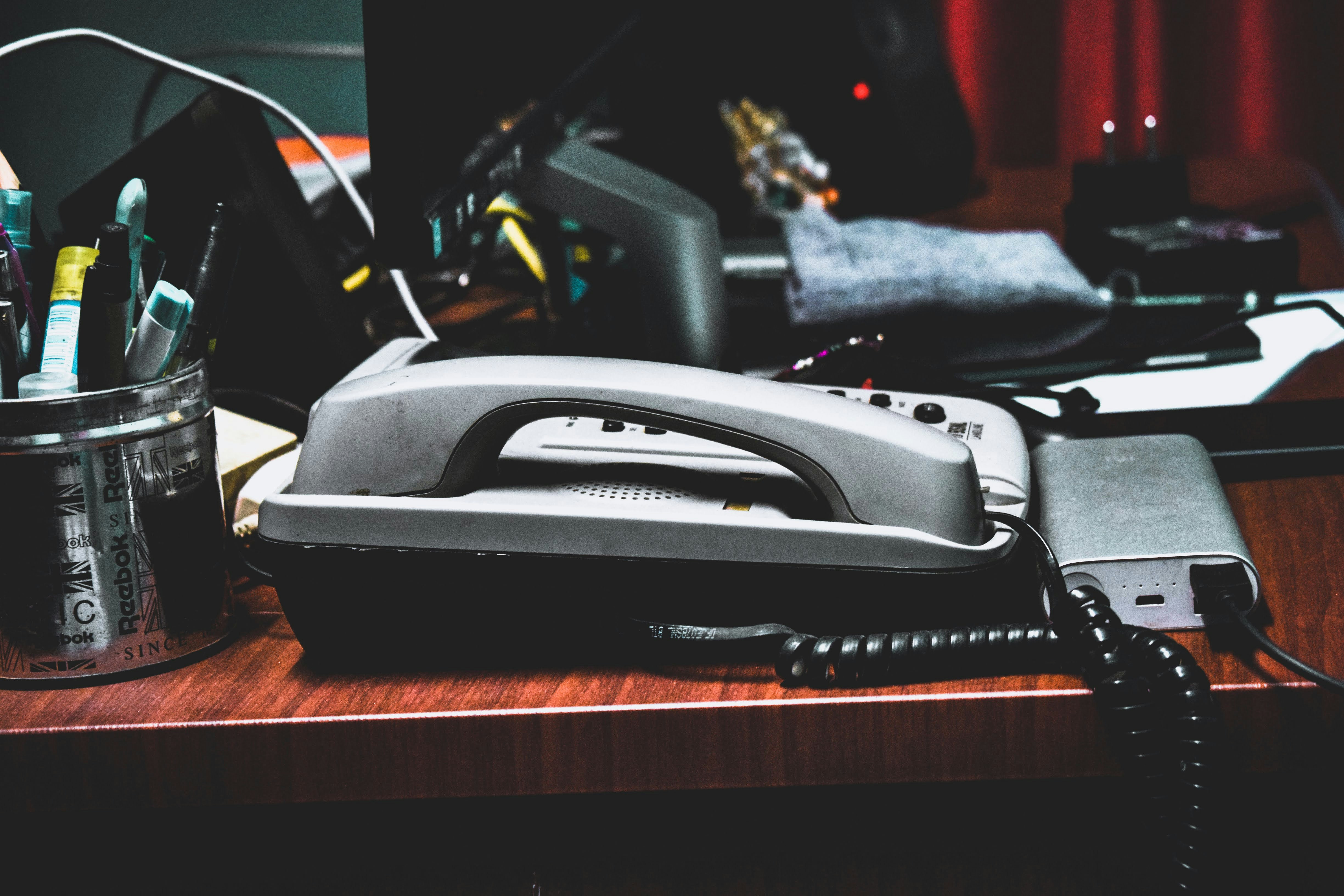Long before, when mobile devices were not even a thing, landline connections held a special place in the heart of every household.
Those late-night phone calls with your special someone, fighting with your siblings on who will get the landline first, and desperately waiting for that one phone call to hear the voice of your loved one, are some of the memories that every Generation X and millennials hold close to. No matter how nostalgic and overwhelming these memories sound, the comfort and convenience offered by modern landline connection is definitely something to vouch for!
Buy Airtel Broadband with exciting benefits!
If you are someone who is not sure of which landline connections to invest in or you simply want to learn the differences between wired and non-wired landline connections, let us help you with all your concerns.
Continue reading till the end to discover some of the interesting and never-known facts and differences between using wired and smart wireless landline phone connections.
What is a landline?
The torchbearer of all phone connections, a landline is the oldest form of telephonic connection that allows users to transmit audio from one location to another. And the best part is, it doesn’t need WiFi signals or battery life to function or make calls. The device can transmit signals from audio data through physical media, pretty much the same as how modern mobile handsets function.
On the other hand, phone services that allow a regular wired telephone to connect to a cellular network are known as wireless landline connections. These wireless connections need electricity or access points to function properly. Landline often provides clear audio quality and can be a reliable tool during power cuts or emergencies.
Also Read: A beginner’s guide to Broadband and how it works
Comparison Between Landline and Wireless Landline Connections
Before investing in home appliances, it is vital to learn the major factors related to the functionality and accessibility of the appliances. This practice helps in making the right decisions and promotes functionality in your home or professional spaces. Let us now dive into some of the major differences between traditional and WiFi landline connections.
-
Handset design:
One of the major differences between landlines and wireless landline phones is the handset design. The traditional landline requires physical infrastructure including, telephone lines, cables, and switching stations. In comparison, wireless landline phones may not require too much physical infrastructure and can operate on wireless towers or base stations to transmit signals between the user’s device and the telephone network. If you’re planning to go for Airtel’s landline connection, then you need to bear the expenses for the handset device, as Airtel will only provide you the modem.
Also Read: How to check for Airtel Broadband availability in your area
-
Mobility:
Talking about mobility, the traditional landline doesn’t offer much mobility and flexibility to users. The device is typically fixed or attached to a specific location that cannot be easily moved to another place. Nevertheless, wireless connections are much more flexible and mobile to use. You can easily move the handset anywhere in your place within a certain range of the wireless base connection. This means you can take your landline device to your bedroom, drawing room, or do activities that involve movement all while talking through your wireless landline handsets.
-
Installation process:
The installation process of traditional landline devices can be a bit complex and time-consuming process. In fact, the installation process may not even be possible without the help of a technician. On the other hand, wireless landline connections can be set up more quickly and easily to the wireless base station or router. Users looking for faster and more convenient internet services, opt for long-term Airtel Fiber Internet plans and enjoy free installation services of ₹ 1500. The installation charges of ₹ 1500 will only be levied if users opt for 1-month internet plans and not long-term plans.
-
Features
Both traditional and wireless landline phones are used by users to connect and transmit audio from one location to another. However, the distinct features and accessibility offered by the two devices may differ significantly depending on the service provider, type of connection, technology advancement, and more. Wireless landlines offer features like data storage, voicemail, conference, and other more features.
-
Reliability:
When it comes to reliability, traditional or wired landline devices may stand out as the winning party. Traditional landline devices are considered more reliable, especially during power outages or emergencies since they don’t rely on electricity or WiFi signals to operate. However, it can be challenging to find wireless landline connections reliable during power cuts or emergencies as they rely heavily on backup sources including batteries, WiFi signals, and more to operate seamlessly.
-
Cost:
Lastly, the overall landline wireless phone prices can differ significantly compared to wired landline options. Specifically, discussing the overall cost of the Airtel landline connections, it may involve installation fees (if you opt for the monthly plan), monthly rental charges, call charges, and more. Check out the Airtel WiFi plans & offers to find the most suitable and fastest broadband connection for your personal and professional use.
Also Read: Here’s why Airtel Broadband is the perfect choice for you!
In conclusion, choosing the best landline connection option may differ from user to user. It is best to invest in the type of landline devices that suit your needs, requirements, and preferences. But, when it comes to networking experiences, you should always choose a leading and trustworthy operator like Airtel. With Airtel Broadband, you can enjoy a fast and seamless networking experience all day long, every day without any hindrances.
FAQ’s
1. What is the difference between a wired landline connection and a wireless landline?
The flexibility in the placement of a wireless landline lies in not requiring cables; instead, it requires a wire in the form of a physical backbone to send voice signals. Usually, wireless landline connection phones work through either a cellular network or a wireless base station. When people choose a new landline connection, they often want wireless varieties because of the flexibility they offer regarding movement.
2. Why would someone prefer a wireless landline over a traditional landline phone connection?
A wireless landline is a highly convenient means of mobility within your home or office since it does not utilize any physical wires. This makes a wireless landline phone apt for offices where installing lines is not feasible. Also, setting up a connection for a wireless landline is more straightforward than with another type of landline connection, which necessitates considerable installation.
3. Can I use a landline with an internet connection for voice and data?
Yes, a landline with an internet connection will enable voice services and internet data on the same line. But when seeking mobility, you would opt for a wireless landline phone connection or a Wi-Fi one for voice and internet.
4. What is the advantage of having a wireless landline telephone over a traditional landline?
The essential advantage of a wireless landline phone is flexibility. While a traditional landline requires physical contact to connect, the wireless landline does not require this; its mobility makes cordless home phone movement relatively easy.
5. How does a wireless landline connection for a phone work?
A wireless landline connection transmits calls using cellular signals or a wireless base station without demanding the cables of physical wiring. It differs from the traditional landline connection because it depends on wired infrastructure. Regarding home needs, there isn’t a better device than wireless landlines that can facilitate mobility and less dependency on cable setups.
6. What equipment do I need for a wireless landline connection?
A wireless landline connection usually would invoke a base station, which connects with the cellular network, and a cordless home phone. Some setups also include a Wi-Fi landline phone, which provides internet access. Of course, when getting a new landline connection, a person needs to decide whether wireless or wired best addresses their needs.
7. How reliable is a wireless landline phone compared to a conventional landline connection?
Wireless landline phones are as reliable as regular landlines, but their reliability solely depends on the strength of cellular signals. If your area has a good coverage of networks, a connection with a wireless landline phone will suffice. On the other hand, a landline wired connection may offer specific stability in case of power shutdowns.
8. Can I have internet access by landline and a wireless landline phone?
Yes, lots of providers provide landlines with internet connection packages. You can use a wireless and landline internet connection or even choose a wifi phone that supports both functionalities. This may be the best landline connection option for those needing to use voice and internet simultaneously.
9. What are the downsides of choosing a wireless landline over a wired landline phone connection?
A possible disadvantage is that a wireless landline depends on cellular networks and might be less reliable than a wired one, especially in emergencies or network failures. Another con for this is that the call quality might not be as good if the cellular reception in an area is not good.
10. Are there unique advantages of a cordless home phone with a wireless landline connection?
Providing mobility around the house, a cordless home phone will give you complete flexibility when paired with a wireless landline connection. Unlike a conventional landline connection that sometimes limits movement due to wired setups, a cordless setup with a wireless landline lets you make calls from any part of your home.
11. What is the best landline connection for internet and calling?
That depends on what you need; the best landline connection for your needs would be the one that best suits your needs. With a wireless landline connection or wifi landline phone, you will find it ideal if you need to be mobile because less cabling is required. A wired connection is better for steady internet speeds and good call quality.
12. Is the setup of a new landline connection any more accessible with the wireless option?
Generally, it establishes a new landline connection much faster and easier using the wireless landline than the traditional one. Wireless settings do not involve extensive wiring, making it ideal for those looking for a quick and flexible solution. Generally, the wireless landline connection option of a phone comes in handy in places where the installation of wires is complex.



